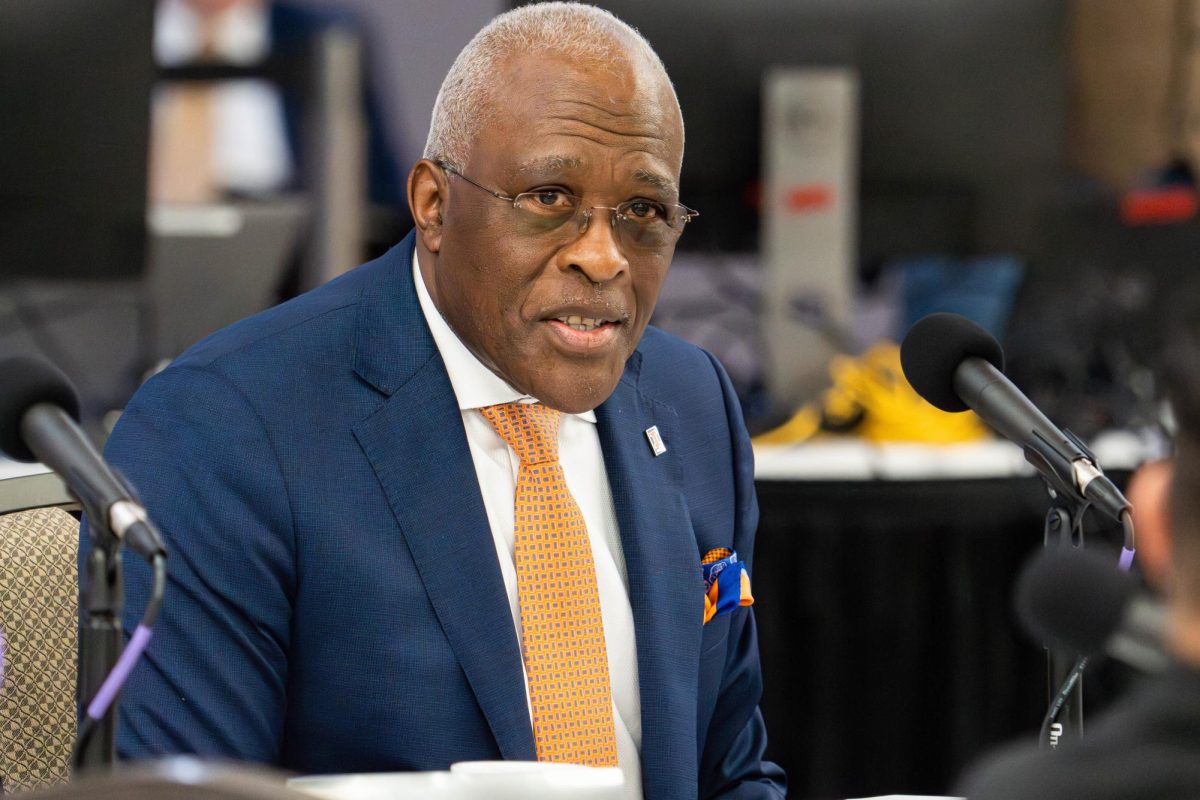Willie Cade, founder of PC Rebuilders and Recyclers, spoke at the I Hotel and Conference Center on Wednesday to inform people about e-waste and what can be done to collect and reuse it.
Cade emphasized the importance of reusing e–waste, or discarded programmable electric devices, to get their full potential. He compared a horseless carriage to a Ferrari to create a visual image for the group of about 200 attendants.
“Today we are in the horseless carriage age in terms of e–waste,” Cade said. “Currently 80 percent of a computer’s life is spent in manufacturing. We need to maximize its energy use.”
This was the first lecture sponsored by the Institute of Natural Resource Sustainability to inform people about e–waste and conserving the unused energy of electronics, said Bill Shilts, executive director of the institute.
“Our understanding has grown very much in this field,” Shilts said. “Our vision is to transform the e–waste field.”
Get The Daily Illini in your inbox!
Cade said most people stop using electronic devices before they have achieved their maximum energy output. But he explained the he has only seen one integrated circuit – a miniature electronic circuit found in almost all electronic devices– that was broken from overuse.
Cade said 81 percent of electronics thrown away go to landfills. When people dispose of items such as integrated circuits, they introduce hazardous material to the environment.
Cade said he founded his company in 2000 with hopes of assisting inner – city students to meet their potential with technology. Since then, the company has delivered 40,000 refurbished computers to schools and nonprofit organizations.
Cade said his company collects about 20,000 computers and redistributes about 5,000 annually.
“This year there have been 90 million PCs sold in the U.S., 250 million sold worldwide, and there are one billion in use worldwide,” Cade said. “It is necessary for us to collect and refurbish a billion pounds of electronics a year because we currently only refurbish one percent of computers.”
Cade has worked with the University in the past to host e-waste collection drives and hold a seminar about the topic. He said he is excited that people at the University are taking action on this issue.
The University will offer a course in the spring that teaches students how to transform e–waste.
Students will hold another e–waste drive during the spring semester for people to bring in electronic devices they no longer use.
Using the recycled electronics, the students will participate in an international competition in which the recycled goods are used to produce a new product.
Professor William Bullock, the instructor of the class, was in attendance at the lecture. He said he thinks Cade’s lecture and involvement on campus is positive.
“Willie being here is wonderful,” Bullock said. “To have someone like him from the industry coming here to tell us how to conserve things. He is just another part of the solution to conserve e–waste.”





